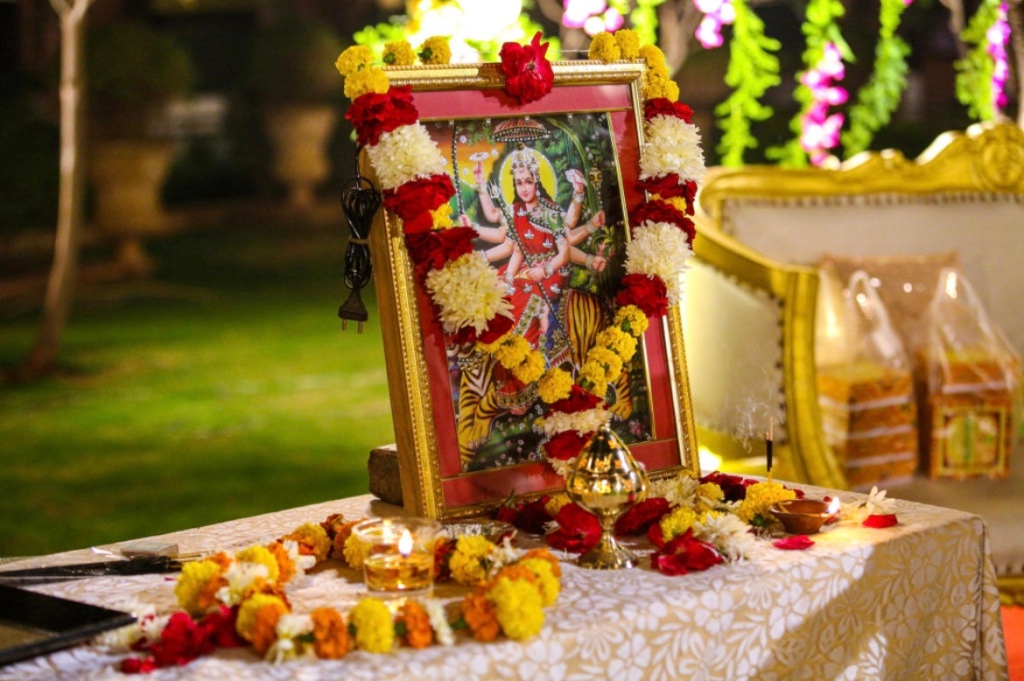Navratri is a nine-day festival that is celebrated with great enthusiasm and devotion in India. The word Navratri is derived from two words, ‘Nav’ which means ‘nine’, and ‘Ratri’ which means ‘night’. It is observed twice a year, once in the spring (Chaitra Navratri) and then in the autumn (Sharad Navratri). This festival is dedicated to the worship of the divine feminine, the goddess Durga, and her various incarnations.
During Navratri, people across India fast, pray and perform various rituals to honor the goddess. The festival begins with the worship of Maa Shailputri, the first form of Durga, and is followed by the worship of Brahmacharini, Chandraghanta, Kushmanda, Skandamata, Katyayani, Kalratri, Mahagauri, and finally, Siddhidatri.
Each day of Navratri has its own significance and rituals. People clean their houses, decorate them with flowers and lights, and wear new clothes. In many regions of India, people also perform Garba and Dandiya Raas, which are traditional folk dances that are performed in circles. The dancers move in a circular motion, clapping their hands and hitting sticks in time with the music.

One of the most important aspects of Navratri is fasting. People abstain from food and some even from water during the day, and then break their fast in the evening with a special meal. The fast is observed to purify the body and mind and show devotion to the goddess.
Another important part of Navratri is the puja, or prayer ceremony. During the puja, devotees offer flowers, fruits, and other items to the goddess and seek her blessings. Special mantras and hymns are recited during the ceremony to honor the goddess.
Navratri is a time to celebrate the triumph of good over evil and to seek the blessings of the divine feminine. It is a festival that unites people of all ages and backgrounds and brings them together to celebrate the power and grace of the goddess. May the blessings of the divine mother be with you always. Jai Mata Di!


Leave a comment